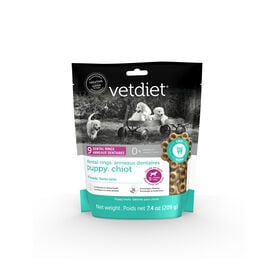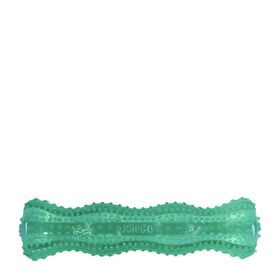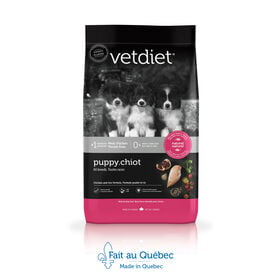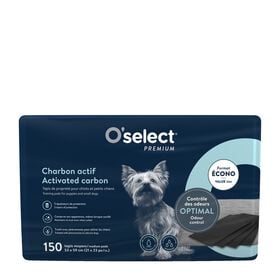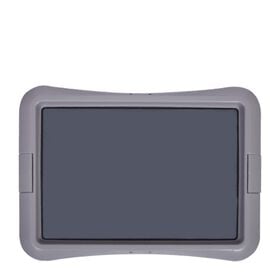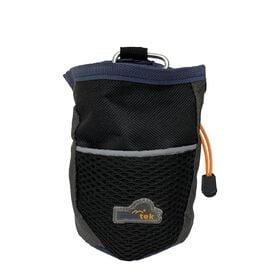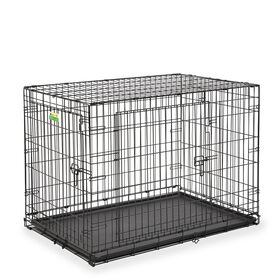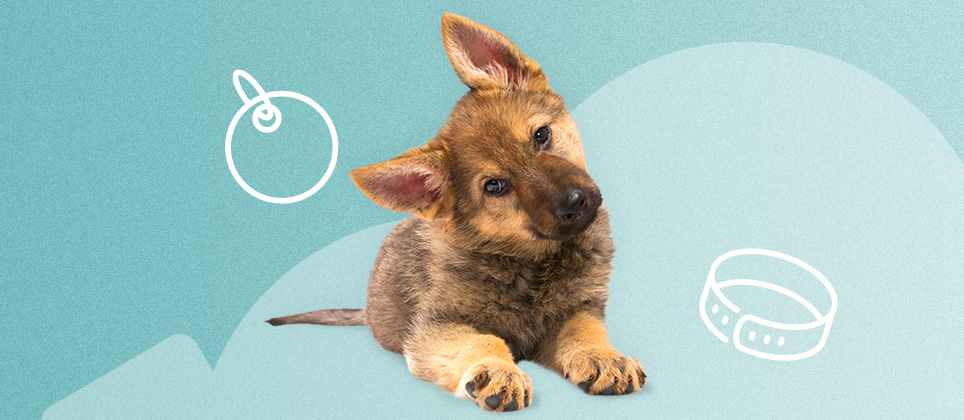
There's a new pup in the house!
Published April 20, 2023.

Mondou Academy
Mondou employee training specialist
After thinking long and hard about getting a dog, your family is finally ready to bring your new faithfull friend home! You just adopted a new dog, it’s a big occasion, not only for you but for the dog as well. But have no fear: we’ll be there with you every step of the way.
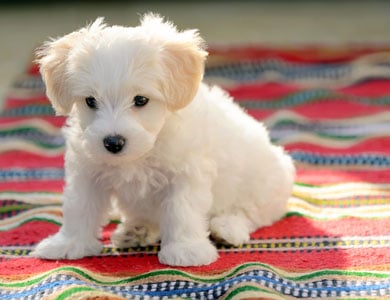
Master the situation
Regardless of breed, dogs need to be taken care of, including on weekends and during holidays. Your dog will need you to:
- spend time with them;
- care for them properly (grooming, food, veterinary care);
- give them plenty of affection.
And remember: these are life-long commitments!
Training your dog
Even before you bring your puppy home for the first time, put some thought into how you’re going to train them.
Authorizations
Follow basic dog training rules, such as always being consistent and never authorize a certain behaviour one day if that same behaviour will be forbidden some other day.
Be firm but gentle, patient and attentive. That’s how to maintain the bond of trust that you will create over time.
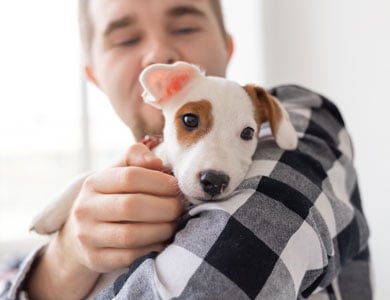
With puppies, it’s either yes or no; there’s no room for grey areas. Anything you allow your puppy to do will quickly become a habit that you’ll have a really tough time breaking.
And remember that you and the other members of your family should use a consistent tone of voice when reprimanding and commanding your puppy.
Disciplining your puppy
For the first few months, your young puppy will likely bite or chew everything in its path. This is normal behaviour: your puppy wants to play, and it’s also teething. Your job is simply to make your puppy understand that this behaviour is not acceptable. As soon as you catch it in the act, say NO firmly to tell him that it's a behavior that is unwanted. Then, give them immediately an alternative and reward him with a treat or just by telling him “good job”. Obviously all of this must immediately follow the undesirable behaviour—in fact, within three seconds—otherwise your puppy will fail to link your reprimand to the behaviour.
Housetraining your puppy
Before your puppy arrives, decide where they will “do their business”.
If it’s going to be indoors, find a spot where you can put a housetraining pad. Make sure it’s easily accessible, but a little out of the way and far from its food bowls.
If it’s going to be outdoors, pay attention to your puppy and watch for the signs: turning in circles and sniffing around in the corners are sure signs that it has to go. All you need to do then is take it outside so it can relieve itself in the right spot.
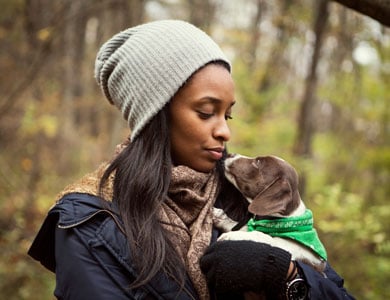
Remember that it’s important to always reward your dog for good behaviour, whether you use food, praise or affection. Of course, patience and consistency are a must. If your dog does its business in the wrong place, remove the feces promptly, but without your dog seeing you do it. This is especially important in order to prevent your dog from imitating you and perhaps developing a problem with coprophagia (eating its own feces). Clean up the mess using an appropriate product, one that does not contain ammonia.
Crate
Your puppy’s crate should be its home, not a form of punishment. As such, it should be a pleasant and quiet refuge. Otherwise, it will acquire an aversion to the crate, and when you have to go out, you’ll have a hard time getting it to go inside.
Sole responsibility for your dog’s safety is in your hands. Now that you’ve taken over for its mother and the breeder, the puppy will turn to you for comfort and protection.
The importance of playing with your dog
Because dogs are highly active creatures, walks need to be more than quick trips to the nearest fire hydrant for relief. If you don’t provide enough physical or mental stimulation (trainning, games...), you’re likely to encounter behaviour problems, not to mention obesity.
Toys
Choose safe toys that have no parts that could come loose. Rather than keeping a large basket full of toys around, it’s best to take two or three toys out at a time and switch them up with other toys each week. This will keep your puppy interested and prevent it from opting for objects it isn’t meant to play with.
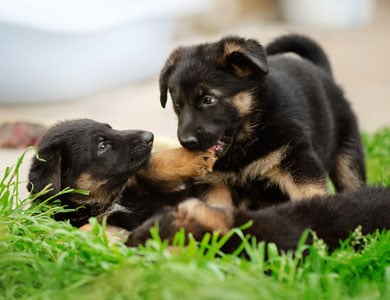
Socializing your dog
Dogs are social animals, so they need to interact with other living creatures. That’s why it’s important to include your dog in your family activities as much as possible: errands, trips in the car, walks, social gatherings and so on. And the more different locations, the better, as long as dogs are allowed there
It’s important to keep in mind that by the time a puppy is four months old, it should have seen and heard just about everything it will ever encounter throughout its life. Doing so will keep it from becoming fearful as it ages. We must make sure to expose them to all kinds of situations but, above all, we make sure that they’re comfortable and to reward good attitudes.
Find everything for its arrival
Everyone is getting set for the big day, and excitement is building, but have you thought about everything your new companion is going to need?
Visit the store to meet and discuss with one of our advisors who will guide you and make sure you have everything you need for a successful arrival.
